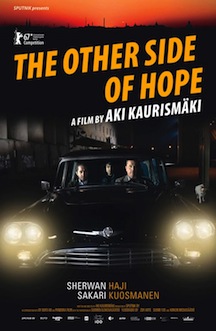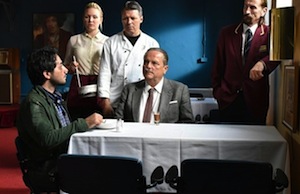Direction: Aki Kaurismaki
Country: Finland
Aki Kaurismaki’s Fallen Leaves, titled after the original French song "Les Feuilles Mortes" composed by Kosma/Prévert, is an affecting art house romantic comedy and social reflection that resonates as a cry from the heart, ultimately radiating more warmth than desolation. With his unmistakable style, Kaurismaki strikes a wonderful tonal balance, infusing the narrative with deadpan humor, poignancy, and hope, offering an understated yet deeply affecting piece of amusement for an autumnal afternoon. Fallen Leaves can be viewed as the lost fourth installment in Kaurismaki’s proletariat trilogy, following Shadows in Paradise (1986), Ariel (1988), and The Match Factory Girl (1990).
At the heart of the story are two loners: Ansa (Alma Pöysti), a hard-working supermarket employee disturbed by war news on the radio and yearning for change in her daily routine, and Holappa (Jussi Vatanen), a depressed metalworker who appreciates solitude, vibrates with American rock n’ roll, and struggles with alcoholism. Their chance encounter at a local karaoke bar sparks an immediate attraction, but their differences become apparent as Ansa refuses to live with a drunk, while he rejects any form of authority. As they navigate obstacles and setbacks, fate seems to continually postpone their chance at happiness.
Grounded in realism without descending into sordidness, the film captures with honest eye a loving couple in their simple, everyday setting. There’s an empathetic embrace of retro and kitsch aesthetics, underscored by tragic songs and a cinematography as clear as crystal. The actors effortlessly embody their characters’ quirks with authenticity. Stripped of romantic idealism, love in Fallen Leaves is depicted as introspective, deep, and gentle - a plea for compassion and understanding that feels timeless.
Kaurismaki emphasizes human resilience and the value of love with his filmmaking gestures, in an absolutely gorgeous and hugely affirming love story. It’s one of those pure delights that’s hard to resist.





